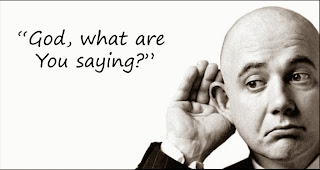Today in Church History: R.B. Kuiper and New Life OPC (Escondido)

Rienk Bouke (R. B.) Kuiper was born on January 31, 1886 in Garrelsweer, a village in the northern province of Groningen, in the Netherlands.
The son of a Reformed Church minister immigrated with his family to North America in 1891. Kuiper's life in the new world involved a constant shuttle between the Midwest and the east coast. After studies at Calvin and Princeton Seminaries, Kuiper served five western Michigan congregations over the course of seventeen years. He then embarked on a career in higher education, first as professor of systematic theology at Westminster Seminary in its inaugural academic year, 1929-30. He then answered the call to serve as President of Calvin College. Three years later, he returned to Westminster where he taught practical theology for twenty years. After his "retirement" in 1952 he served as president of Calvin Seminary for four years.
Kuiper was a ministerial member of the Orthodox Presbyterian Church for 16 years, and he moderated the fourth General Assembly in 1938. He was the author of several popular books, including As to Being Reformed, The Glorious Body of Christ, and God-Centered Evangelism. In his writing and especially in his preaching, "he had the gift," wrote Robert Nicholas in the Presbyterian Guardian, "of making the profound simple as he proclaimed the whole counsel of God."
Kuiper died on April 22, 1966 in Grand Rapids, at the age of 80.
New Life OPC (Escondido)
On January 31, 1989, New Life OPC in Escondido, California, left the Orthodox Presbyterian Church and joined the Presbyterian Church in America.
In a process dubbed "voluntary realignment," the Escondido congregation was one of several churches established by New Life OPC in Jenkintown, Pennsylvania, that left the OPC in frustration over two failures of the denomination to unite with the PCA within the previous decade. In an exchange published in New Horizons, John Frame defended the exodus. "Our congregation," he wrote, "has gifts from God, a strategic location, and a burden and a calling to plant churches in San Diego County. Most of the more gifted church planters in this area have preferred to work in the PCA rather than in the OPC. Thus we believed we had good reason, indeed, a divine mandate of sorts, to switch denominations."
Richard B. Gaffin, Jr., disagreed: "To withdraw unilaterally and for the reasons currently being given " frustration, preference, or presumed advantage " is to retrace those fatal steps that first divided Christ's body."
Twelve years later, the OPC returned to Escondido with the planting of a mission work in the city.
Labels: History
























